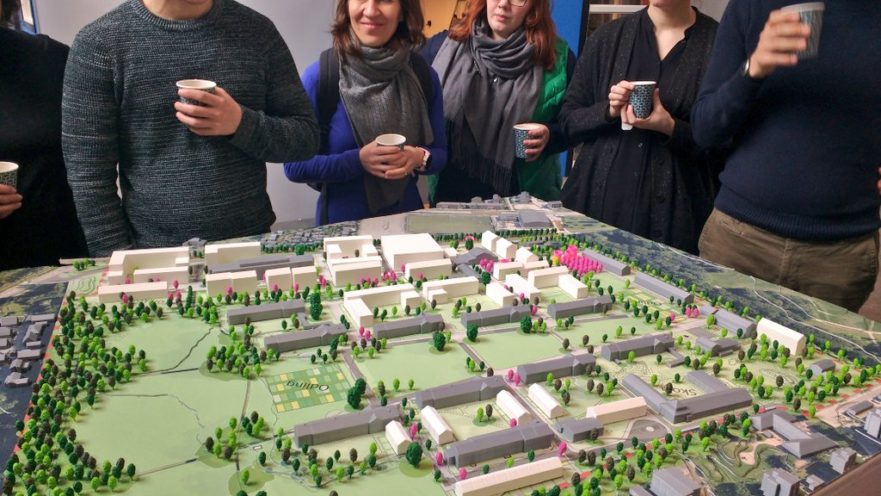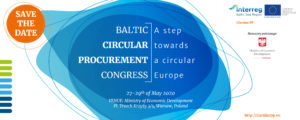In March 2019, the Circular PP had their 4th Partner Meeting in Malmö, Sweden. As well as being an opportunity to update partners on ongoing work, and to share learning developed through project activities, it was also a chance to experience first-hand many of the exciting circular activities happening in Malmö.
Formerly a global shipbuilding hub, Malmö is a city in transition, redefining itself as a hotspot of sustainability. It was therefore very fitting that the project took place in STPLN – a former slipway where dry-docked ships were built, now transformed into a shared space for creativity and community. Retaining cultural heritage while reusing a building – that’s very circular!
The project partners were also treated to sustainable, circular food throughout the meeting, like lunch at SPILL – a restaurant that serves a different meal every day made almost entirely from food waste. Owner Erik Andersson started the restaurant after seeing how much food is thrown out by commercial suppliers to restaurants on superficial reasons alone. By highlighting the problem he wants to change the system – to the extent that he doesn’t want to have a business in five years. Also on the menu was some self-prepared plant based food, guided by City of Malmö’s own organic chef, Louise Dahl. Louise, who is normally responsible for educating chefs in the city’s preschools on climate smart cooking, guided partners through the preparation of their very own plant-based, no-waste dinner.
On Circular PP’s final day in Malmö, partners visited one of Malmö’s ‘newest’ neighbourhoods – Sege Park. On the site of a former hospital, the buildings and surrounding parkland are being transformed into a sustainable district, including renewable energy, urban farming spaces, and dedicated sharing hubs to increasing the sharing economy. A circular learning centre has also been established to guide the construction of new buildings in the neighbourhood.
Partners then took a short trip across the bridge to Malmö’s neighbour, Copenhagen, for a visit to the Lendager Group, a cross-disciplinary group which specialises in promoting the circular economy within buildings, cities and companies. Lendager aims to design the world of tomorrow with the waste of today. Initially started as a sustainable architecture firm, Lendagare talked partners through the circular demolition and building process, including material mapping and design which retains urban heritage, upcycles materials, and is flexible to future needs.
It was altogether a very inspiring trip, demonstrating many measures that can be taken to increase sustainability – from the individual to neighbourhood level – and the role that public procurement can contribute to supporting the transition to a circular economy.



